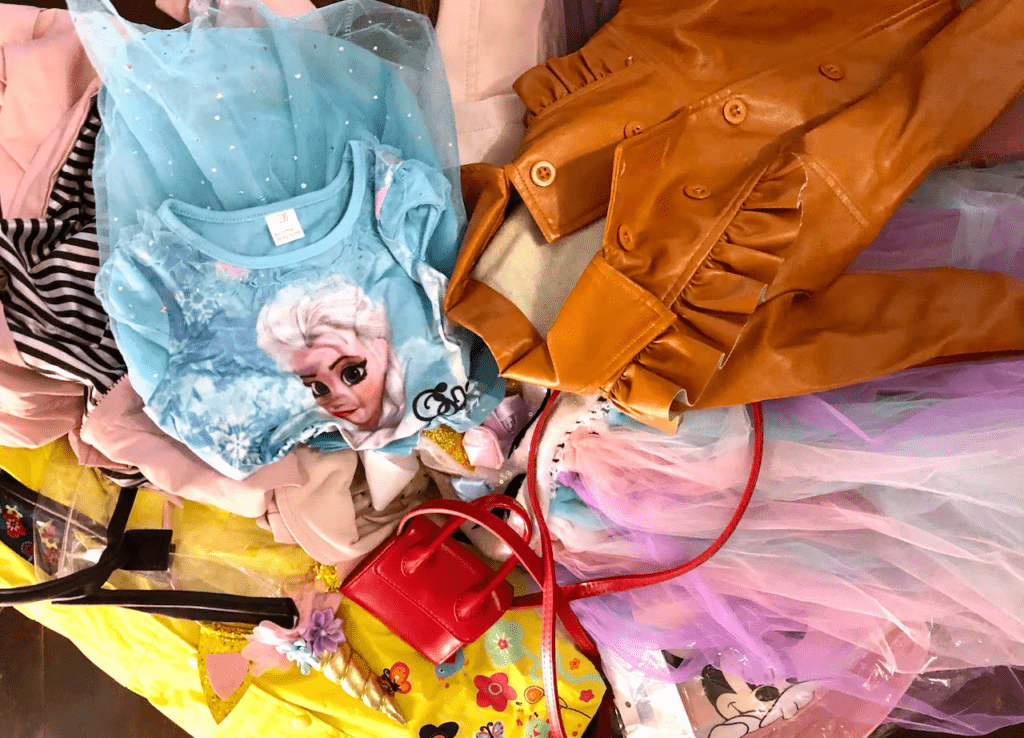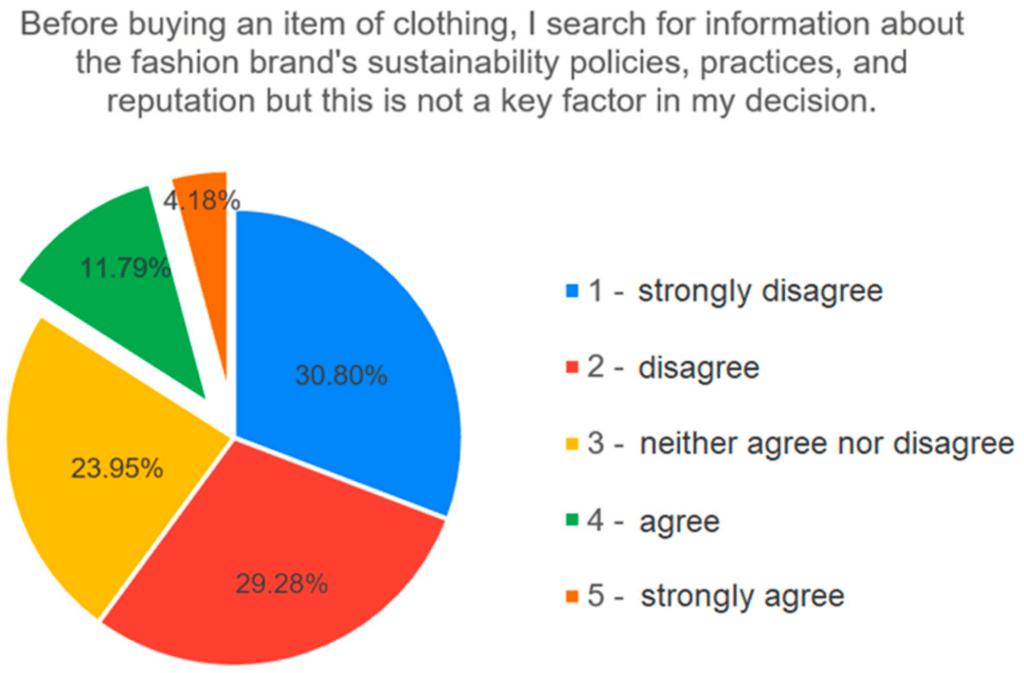A recent investigation by South Korean authorities has uncovered alarming levels of toxic chemicals and carcinogens in clothing from well-known fast fashion brands. Over 100 products from Temu, Shein, and AliExpress were tested, revealing that many items exceeded legal limits for harmful substances like phthalates, lead, formaldehyde, and dioxane. These findings have sparked growing concerns about the safety of fast fashion and its broader impact on health and the environment.
Health Risks of Fast Fashion
The discovery of these dangerous chemicals poses significant health risks for consumers. Phthalates, for example, are often used to soften plastics in clothing but have been linked to severe health issues such as liver damage, reproductive hormone disruption, and increased risks of diabetes and cancer. Similarly, exposure to high levels of lead, commonly found in fashion accessories like buttons and zippers, has been connected to neurological problems, particularly in children, as well as kidney and cardiovascular diseases.
Consumers can absorb these toxins through their skin when wearing contaminated clothing. Worse still, factory workers involved in fast fashion production face even higher risks due to prolonged exposure to these harmful substances. This discovery further intensifies the criticism that fast fashion not only threatens consumer health but also exploits vulnerable workers in unsafe conditions.
Environmental Impact of Fast Fashion
Beyond the immediate health hazards, the fast fashion industry is notorious for its harmful environmental practices. The synthetic fibers often used in fast fashion clothing, such as polyester and nylon, release microplastics into waterways every time they are washed. These tiny plastic particles accumulate in oceans, harming marine life and contaminating the global food chain.
Additionally, the environmental costs of producing cheap, disposable clothing are staggering. The industry contributes to deforestation, illegal land grabs, and pollution, often in regions where indigenous communities rely on natural resources for their livelihoods. The relentless demand for new styles and fast turnarounds encourages environmentally destructive practices, creating a ripple effect that impacts ecosystems worldwide.

The Need for Sustainable Alternatives
The discovery of carcinogens in these popular fast fashion brands highlights the urgent need for sustainable clothing alternatives. Eco-friendly fashion brands emphasize using non-toxic materials, organic fibers, and ethical production methods that respect both people and the planet. These companies often focus on reducing waste, conserving water, and limiting harmful chemicals, offering a safer option for consumers seeking to minimize their exposure to dangerous substances.
Choosing sustainable alternatives is not only about protecting personal health but also about promoting environmental stewardship. By supporting brands that prioritize ethical production, consumers can send a powerful message to the fashion industry that quality, safety, and sustainability are non-negotiable.
Consumer Awareness and Action
The revelation of toxic chemicals in fast fashion items has prompted widespread concern among consumers, many of whom are now reconsidering their clothing purchases. Awareness of the health risks associated with cheap, mass-produced fashion is growing, and shoppers are increasingly seeking out information on the sourcing and manufacturing practices behind their favorite brands.
As consumers become more educated on the risks of fast fashion, they are empowered to make informed decisions. Avoiding fast fashion brands that have been linked to toxic chemicals, supporting sustainable alternatives, and advocating for stronger regulations on clothing production are all steps that can help drive meaningful change.
While the South Korean authorities findings are concerning, it is important to critically assess whether these reports reflect a widespread issue or are being amplified by external factors. Fast fashion brands have often faced scrutiny for their environmental and ethical practices, and these revelations add to a growing narrative of exploitation and poor regulation. However, the consistency of results from independent studies, alongside this government investigation, suggests that these claims are not mere propaganda but highlight real concerns about the safety and regulation of fast fashion clothing.
This investigation emphasizes the urgent need for stricter enforcement of safety standards and a greater focus on sustainable, ethical fashion production.
Are Consumers Really Interested in a Brand’s Sustainability? The Surprising Truth
When examining whether customers actively search for information about a brand’s sustainability policies, practices, and reputation before making a purchase, the results indicate a notable lack of engagement. According to the data, around 30% of respondents strongly disagreed, and 29% disagreed, meaning that the majority (59%) do not prioritize looking into a brand’s sustainability credentials before buying. Additionally, around 23% neither agreed nor disagreed, suggesting indifference or a lack of awareness. Only a minority of consumers—17% (12% agreed, 5% strongly agreed)—reported that they consider sustainability practices during their purchasing decisions.
This data highlights a critical challenge for companies emphasizing sustainability, as consumer awareness and engagement with sustainable practices remain relatively low. It suggests that while sustainability is increasingly discussed, it is not yet a primary consideration for most buyers. Brands may need to focus more on educating consumers and making sustainability a more prominent part of their identity to influence purchasing behavior.

Sustainability Shaping Consumer Choices: A Growing Trend Across Demographics
Consumers are however taking proactive steps towards sustainability when purchasing products. Nearly 50% of global consumers actively chose at least one sustainable product or service in 2023, demonstrating a growing commitment to environmentally conscious choices despite economic pressures like inflation. This shift shows that sustainability is now a mainstream priority, appealing to a broader range of consumers beyond just affluent or younger demographics. Gen Z may be leading the charge, but all age groups are increasingly mindful of reducing carbon footprints and opting for eco-friendly packaging, making sustainability a central factor in purchasing decisions.
Furthermore, consumers are willing to spend more on sustainable products, with studies showing that they are prepared to pay an average premium of 27% for goods that align with environmental values. This underscores the growing demand for businesses to prioritize sustainability not just for ethical reasons, but as a competitive edge. In many cases, consumers also prefer brands with strong ESG (Environmental, Social, and Governance) claims, demonstrating higher brand loyalty when companies back up their promises with real actions.
This shift indicates a broader awareness of the environmental and social impact of consumerism, driving the need for brands to adapt to these growing expectations.
Conclusion
The discovery of carcinogens in popular fast fashion brands serves as a wake-up call for both consumers and the industry. While the allure of cheap, trendy clothing may be hard to resist, the hidden costs to health and the environment are far too high. By opting for eco-friendly brands and promoting ethical practices, consumers can protect their well-being and contribute to a healthier, more sustainable future.
In this critical moment, it is clear that the fast fashion model is unsustainable—not only in terms of its environmental toll but also its impact on human health. The shift toward responsible fashion is essential, and each clothing choice we make can help drive this change.
Related Content
- Shein and Temu products found to contain high levels of carcinogenic substances
- Nano-Scale Revolution: How Lab-on-a-Chip Technology is Transforming Environmental Monitoring and Toxicity Testing
- Geoengineering: A Crucial Step Toward Saving the Arctic’s Ice
- Brittany’s Dark Secret: The Polluted Paradise of Saint-Michel-en-Grève
- The Intersection of Wealth, Sustainability, and Climate Change in 20249 pieces Set Travel Organizer Storage Bags Suitcase Packing Set Storage Cases Portable Luggage Organizer Clothes Shoe Tidy Pouch
- Gaza: Where Skies Weep Toxic Tears and the Earth Bleeds Sewage
- The Environmental Catastrophe of War: Understanding the Crisis in Gaza
- JOYBOS Car Trunk Organizer Fabric Storage Box Foldable Clothes Bag Laundry Blanket Pillow Toy Storage Cabinet Pet House Toolbox
- Top Clothes Hanging Garment Dress Clothes Suit Coat Dust Cover Home Storage Bag Pouch Case Organizer Wardrobe Hanging Clothing
- Infant Rompers Baby Girl Clothes Kigurumi Pajamas Animal Cartoon Kids Jumpsuit New Born Toddler Baby Romper Fox Cow Panda Winter
- 7- 11PCS Thickened Vacuum Storage Bag For Cloth Compressed Bags with Hand Pump Reusable Blanket Clothes Quilt Organizer Travel
- Double Gift Seaweed Clothes Basket Storage Basket Three Piece Set, Large Fruit Basket, Vegetable, Potato Storage Gift Basket, Stackable, Organize And Store Bath Towels, Toiletries, Etc., Keep The Bathroom Clean And Orderly
- Authorities discover carcinogens hundreds of times over
- Temu, SKIMS, Fashion Nova: Fast fashion brands score
- Toxic Chemicals in Ultra Fast Fashion Could Be Harming
- The impact of textile production and waste on
- Detox My Fashion – Greenpeace International


